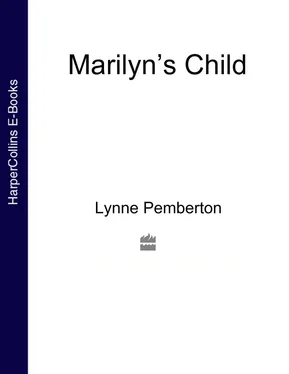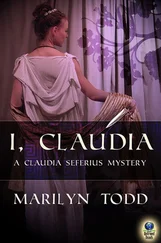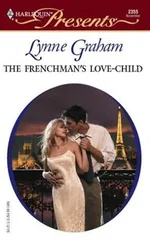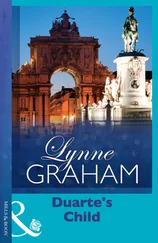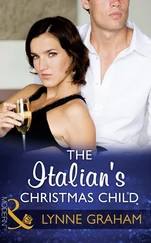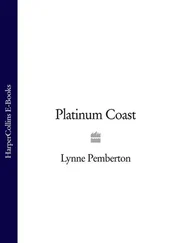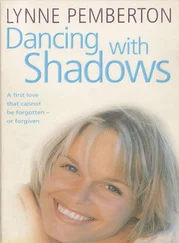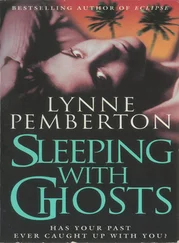I’d no idea why Father O’Neill was confiding in me like this, and I found it difficult to contain my shock.
‘But, being a fair man, I’d feel downright churlish if I refuse. Now, if you, the artist, were to say it had to be the raffle prize for the church fête, well, that might present a totally different story.’ The priest scratched his head, leaving a hole in his sparse hair where his finger had been. ‘If I’m honest, I can understand why he wants to keep it. Grand likeness and perfectly executed. Sure, one of your ancestors must have been an artist.’
I felt a tug in my chest for all the times I’d wondered the same thing. Would I ever know who I was? Or was I destined to
.spend the rest of my life scarred with question marks? I knew Bridget felt the same as I did, but had, with her enviable complacency, accepted her lot. On numerous occasions she’d tried to convince me that digging for my past would create a hole so deep I might never be able to fill it.
Father O’Neill lowered his head. Two identical hairs poke out of each nostril and as he speaks they move simultaneously. ‘You painted the portrait for the church, Kate; what do you think about the curate keeping it for himself?’
It was the first time in my life an adult had asked for my outright opinion, on any subject, and to come from the lips of a priest, a ferocious terrifying man of God, was the last thing I would have expected. I racked my brain for something non-committal. ‘If Father Steele wants the painting that much, I’m sure he’s got good reason. We know you are a generous man, Father, and I think it would be very kind of you to give it to the curate.’
For a long moment he was silent, then, puffing out his chest and looking for all the world like a huge carrot-topped pouter pigeon, Father O’Neill said, ‘I’ve decided the curate must have his portrait.’ Then he slapped me on the back between my shoulder blades, winding me and making me splutter. ‘It’s a grand portrait, incredible likeness. You’ve got a rare talent, Kate. That’s for sure.’
Catching my breath, I said, ‘Thank you, Father. Soon I’ll have more time to concentrate on my painting. I’ll be sixteen next week, time to leave the orphanage.’
‘How time flies. I remember you when I first came to the parish. You were no bigger than –’ he holds his hand out level with my waist – ‘this, and with a head of golden hair the like of which I’d never seen before, except in films. Sure, you were and are a beautiful child. I recall saying to Mother Peter, “She’s like an angel, that one.”’ He chuckled. ‘Mother Peter nodded, all knowing like, and said, “Not an Irish angel, to be sure.’”
I put on my best innocent smile. ‘It would make me very happy for the curate to keep his portrait. If I had time, I’d paint another for the fête, Father.’
‘Perhaps you could find the time, young Kate, to dash off a quick drawing of the church, or the village?’
The fête was next Saturday, less than a week away. I had no time but could make time. ‘If you were to speak to the good sisters about my chores, Father, then I might be able to dash off more than a drawing of the church – a watercolour, perhaps?’
The priest’s eyes twinkled mischievously and to my surprise he grinned, suddenly boyish, and said in a conspiratorial whisper, ‘Consider it done.’
Father O’Neill is true to his word and the following few days after school I arm myself with a pad and pencils and scurry to the churchyard. Perched on a stool, I sketch the Norman church. St Winifred’s in Friday Wells is no grand edifice, yet to avoid criticism by the entire village I feel compelled to give the building some elegance and dignity.
I draw the stone columns rising either side of the arched entrance taller. I labour over clouds, like fake Santa Claus beards stuck to the towering spire, and I marvel at the way the cut-glass windows above the nave catch the light in a kaleidoscope of purple and green. For hours I mix and re-mix colour to get the exact shade. I paint until my hand and wrist ache and the light fades from sallow dusk to inky black. Most nights I miss supper; thank God for Bridget, who one night saved me half a slice of dry bread and a chunk of cheese, and another managed to nick a hard-boiled egg.
Late Friday afternoon, the day before the fête, the painting is complete. It isn’t a patch on Father Steele’s portrait, but I’m positive Father O’Neill will be pleased, and I’m certain it will fetch what the priest calls a pretty penny. Perhaps, I speculate, more than the portrait. After all, a portrait of a priest is not everyone’s cup of tea. Sure, most of the folk around Friday Wells would much rather hang a painting of the parish church than the parish curate looking for all the world like a film star in the role of a priest. Small-minded people, I conclude, and hypocrites: they say one thing and mean another. Fear, that’s what it’s all about. They are afraid of what other people might say or think. Why should it matter what others think? I ask myself. Recently I’d had this conversation with Mr Molloy, who had, I sensed with the perception thing, a different kind of attitude. He was always reading: books with unusual titles, books on philosophy, he called it. He’d encouraged me to read, lent me books, saying I had a bright enquiring mind. I loved reading, and enjoyed the discussion Mr Molloy insisted on after I’d finished a book. The ‘post mortem’, he called it. ‘Reading’, he said, ‘gives you an insight into the human condition, and with that knowledge comes greater understanding.’
Even without books I do understand some things. I know for certain some people need to believe in something, anything, and the church fulfils that role. If you believe in God and everything he stands for, then you don’t have to face yourself and who you really are.
‘It’s very good, Kate.’
The voice is behind me and without turning I say, ‘Not in the same street as your portrait, Father.’
‘Perhaps for some being in a different street is better.’
I nod, then screw my neck around to face him. ‘You’re right. I was thinking about just that a few minutes ago. I believe the folk around here will be more comfortable with a painting of the parish church hanging over the mantelpiece than a portrait of a film-star curate.’
He inclines his head, but not before I’ve seen his cheeks turn crimson. I stand and begin packing my things into the cheap PVC bag, thinking, not for the first time, how much I’d love a proper art portfolio in soft brown leather with two long carrying handles and shiny buckles, exactly like the one Gabriel Ryan’s parents had bought him for his fifteenth birthday.
‘Can I walk you to the end of the lane, Kate? There’s something I wish to say to you.’
It’s my turn to blush. I mumble, ‘Of course.’
It’s unusually warm for June, and dry. There has been no rain for ten days, a phenomenon in Ireland. Yesterday I heard a girl at school say the weather was as hot as Spain, she knew because she’d been there twice to stay with her grandparents. Spain seems a million miles from Friday Wells even on a humid evening like this one. I wonder if the sky in Spain is the same as the one above our heads. Shades of indigo streaked with gold stretch beyond dour rooftops, above tall yellow grass clumped below charred hills smudged against the horizon. A plane unzips the sky and I try to imagine how it must feel to be flying through the air on the huge mechanical bird.
‘Have you been in an aeroplane, Father?’
‘Yes, several times.’
Still gazing at the retreating aircraft, I ask, ‘Where to?’
‘Italy, South America and England.’
‘For holidays?’
‘No, working. I lived in a monastery in Italy, in the most beautiful part of the world – a place called Umbria, and in Spain I worked in a small parish in Andalusia.’
Читать дальше
